How Trump's sweeping new policies could change travel
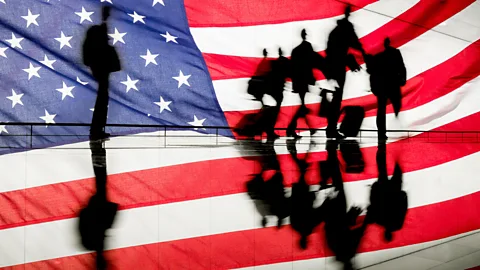 Alamy
AlamyAs the new US president makes massive governmental cuts, issues tariffs and leads an immigration crackdown, domestic and international tourism faces unprecedented changes.
In the United States, a new presidential istration always comes with policy shifts. But the dizzying speed with which President Donald Trump has issued executive orders and made sweeping federal changes during the first month of his second term has much of the world wondering what the long-term impacts of these changes might be, and what else is yet to come.
By threatening and instituting tariffs on longtime allies, moving to overhaul the US immigration system, promising "mass deportations" and empowering unelected billionaire Elon Musk to fire thousands of federal employees and potentially shutter entire agencies established by Congress, Trump has come out swinging in his second act. And while these policy shifts are likely to have far-reaching social, political and economic implications, experts say they will also have a huge impact on the US travel industry.
"From immigration rules to trade wars, these changes will make travel to and within the US a lot more complicated and way less appealing. It's like putting up a giant 'Do not enter' sign just as the world is getting back into full travel mode," said Kristin Winkaffe, founder of travel firm Winkaffe Global Travel. "If you make it harder for people to get visas, fewer people will come – it's that simple."
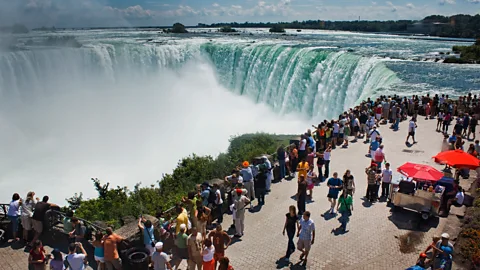 Alamy
AlamyThis already appears to be playing out with the US's northerly neighbour. As Trump continues to threaten tariffs against Canada, even proposing annexing the entire nation, some Canadians have started boycotting US travel. The US Travel Association has warned that a 10% reduction in Canadian visits could result in more than $2bn in lost spending and 14,000 job losses.
Yet, the new istration remains confident that its policy shifts will benefit travellers. "President Trump has entrusted this team to work tirelessly to reaffirm American's [sic] complete confidence in the safety of our transportation systems," newly appointed US Transportation Secretary Sean Duffy said in a statement. "Our focus remains on ushering in a golden age of transportation while prioritizing the Department's core mission of safety and delivering innovative projects that move America."
While the full scale of Trump's policy changes are yet to be seen, experts and travel professionals are keeping a close eye on the specific ways they may reshape travel. We spoke to some of them to find out how these impacts might affect domestic and international travellers.
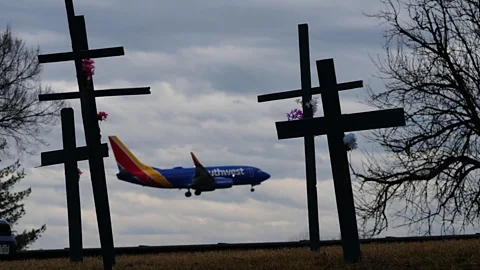 Alamy
AlamyAir travel
Perhaps no mode of travel has been more scrutinised in recent weeks than the aviation industry. In the past month, four fatal plane crashes in the US have led confidence in air travel to drop from 71% of Americans believing air travel is safe in January 2025, to 64% in February, according to a recent AP survey.
Trump's recent policy changes aren't likely to improve this number. Air traffic control staffing was already under pressure nationwide and has been indicated as the cause of near-misses. Yet, even after investigations into the recent crash in Washington DC that killed 67 engers found that air traffic control staffing was not at normal levels, Trump's istration began firing hundreds of Federal Aviation istration employees last week. He has also fired the heads of the Transportation Security istration (TSA) and the Coast Guard, and disbanded the Aviation Security Advisory Committee, leaving some wondering if aviation safety would continue to be a federal priority.
The State Department also suspended all processing of ports with the X identity marker, leaving many non-binary Americans potentially cut off from international travel. More than 15 countries – including Australia, Canada, Colombia and India – allow citizens to amend their gender to non-binary or third gender, so it is yet to be determined how these visitors will be treated upon entry.
In addition, more than 200 TSA employees have been laid off so far, and many expect screening times – especially among international visitors – to go up. Some LGBTQ+ travellers, in particular, are concerned about how recent policy changes will affect air travel.
"States like Texas, which is a hub for two of the three major US carriers, are looking at enforcing bathroom use in all public buildings (including airports) along the lines of the binary sex you were assigned at birth," said Lindsey Danis, creator of outdoor travel blog Queer Adventurers. "Trans people would have to choose between complying with a law that would force use of the bathroom that aligns with their former gender or breaking the law and possibly being targeted for being in the 'wrong bathroom'."
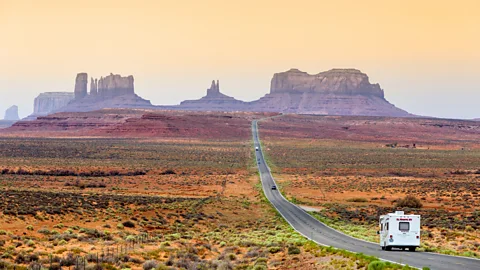 Alamy
AlamyRoad trips
With Trump threatening to tariff Canadian oil starting in March, experts expect gas prices to rise as much as $0.15 per gallon, potentially putting a damper on holiday road trips. Some believe that the president's focus on increasing domestic oil and gas production may temper the effects of tariffs on domestic gas prices, but that may take longer to see at the pump.
Even those with electric vehicles may have more trouble charging. Earlier this month, the Trump istration paused the National Electric Vehicle Infrastructure Program, a clean energy initiative that had allocated billions of dollars for states to create electric car charging stations since 2021.
Those hoping to drive to or through one of the US's spectacular national parks may also face extra challenges. President Trump recently fired 1,000 national park workers, leaving many to suspect that the staffing shortages will result in maintenance issues, shorter visitor centre hours and fewer amenities for travellers. Yosemite National Park, for instance, has already delayed its summer campground reservations.
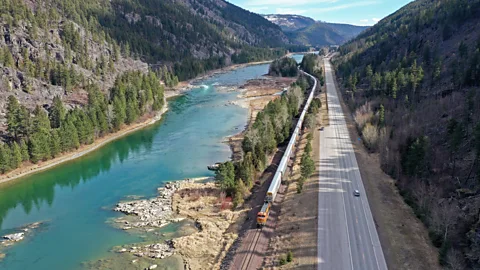 Alamy
AlamyTrain travel
Similarly, federal funding for train travel seems to be an area that the Trump istration has eyed cutting. As part of recent spending freezes (some of which were temporarily rescinded recently), the US Department of Transportation is under scrutiny, in particular for its rail-related spending. Experts think this is likely to affect the $22bn in annual Amtrak funding, the development of high-speed rail corridors and intercity enger rail service and grants for railroad safety programmes (which work to improve dangerous railroad crossings).
More like this:
• The Alabama museum grappling with the 'Gulf of America'
It's not that rail is universally under attack, but some suspect that Trump may be looking to further privatise the industry. "Right now, there's a bigger push for private companies to take the lead in rail investment, which could bring fresh ideas and innovation but also raises questions about accessibility," said public policy advisor Justin Goldsberry. "Will ticket prices rise? Will service improve, or become limited in certain areas">window._taboola = window._taboola || []; _taboola.push({ mode: 'alternating-thumbnails-a', container: 'taboola-below-article', placement: 'Below Article', target_type: 'mix' });
